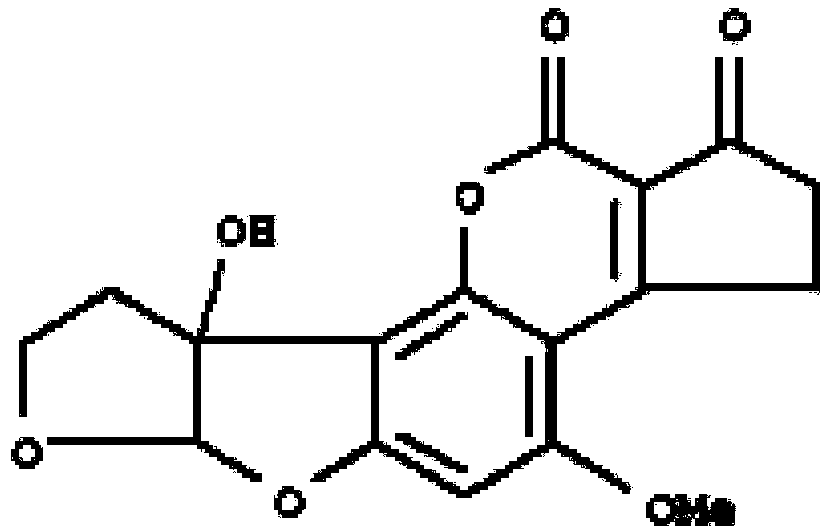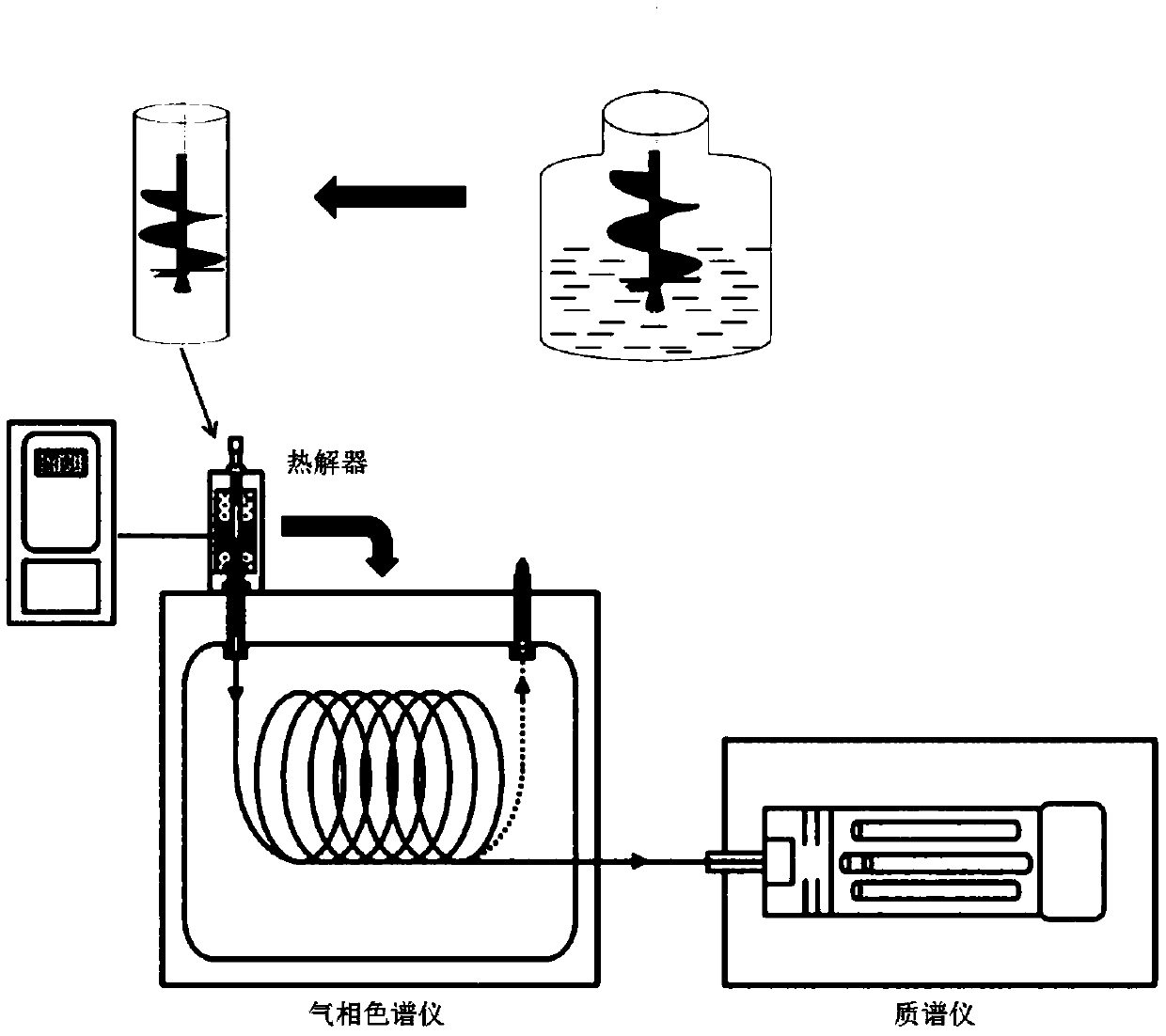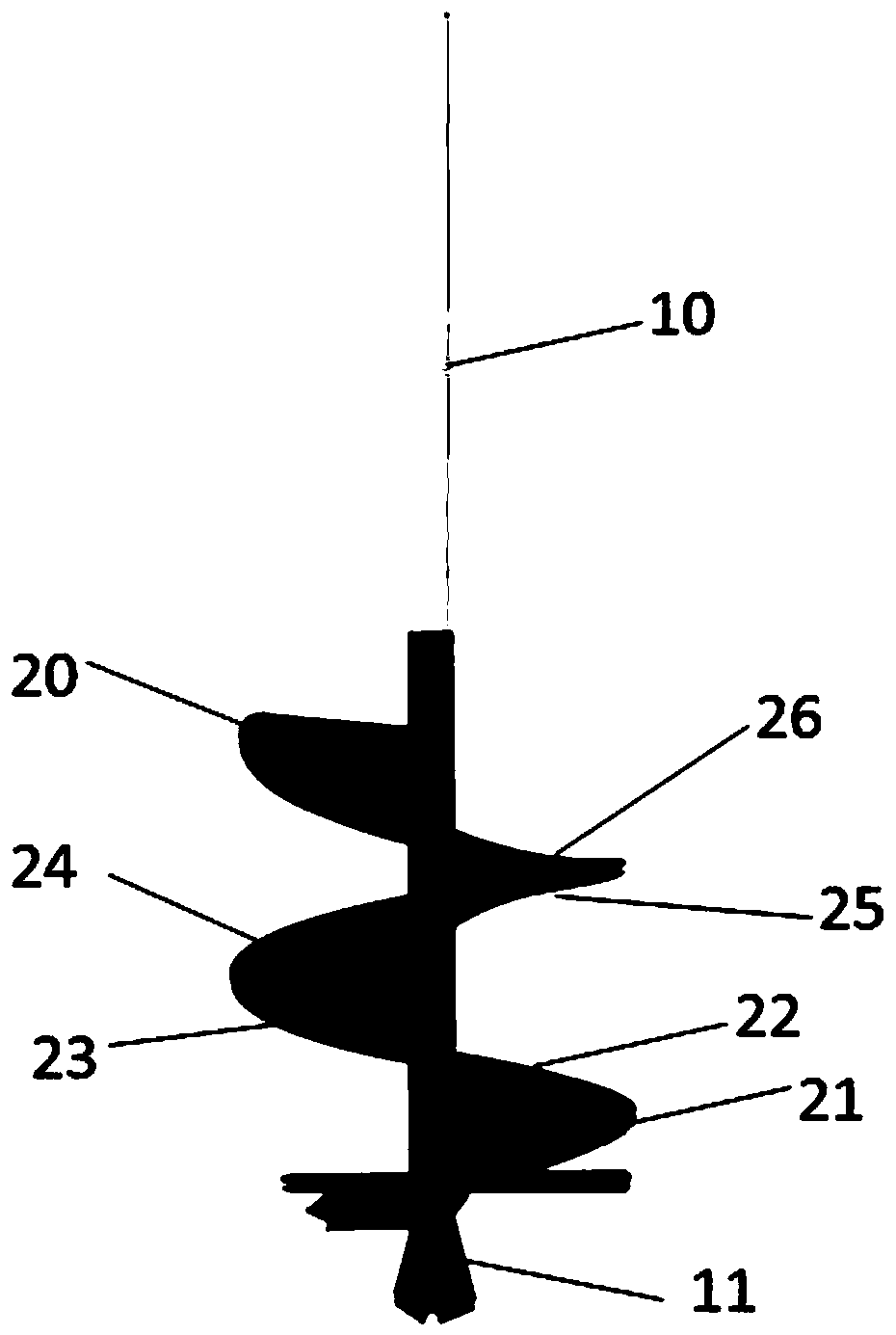Method for synchronously detecting six kinds of aflatoxins based on graphene nano material and stirring rod
An aflatoxin and nanomaterial technology, applied in the field of detection, can solve the problems affecting the detection of target substances, insufficient mechanical strength, falling off of target substances, etc., achieve good chemical inertness and thermal stability, avoid impurity chromatographic peak interference, device The effect of cost reduction
- Summary
- Abstract
- Description
- Claims
- Application Information
AI Technical Summary
Problems solved by technology
Method used
Image
Examples
preparation example Construction
[0040] The preparation method of the stir bar of the synchronous detection multiple aflatoxin based on graphene nano material of the present invention comprises the following steps:
[0041] S1 coating: ultrasonically pulverize graphene and make a graphene solution with a concentration of 0.1-0.6mg / ml, and then spray the obtained graphene solution on the stirring rod base material preheated to 120°C-130°C to obtain Graphene-coated stir bars;
[0042] S2 Conjugated Antibodies: Conjugate Aflatoxin B1 Antibody, Aflatoxin B2 Antibody, Aflatoxin G1 Antibody, Aflatoxin G2 Antibody, Aflatoxin M1 Antibody and Aflatoxin M2 Antibody to On the graphene coating, obtain the stirring bar that is coupled with aflatoxin antibody on the graphene coating.
[0043] Wherein, the stirring rod base material is any one of stainless steel, tempered glass and ceramics; in step S2, the coupling method between the graphene coating and various aflatoxin antibodies is EDC / NHS coupling Any one of couplin...
Embodiment 1
[0045] The structure of the stirring bar for synchronous detection of six aflatoxins based on graphene nanomaterials of the present invention will be described below in conjunction with specific examples. see image 3 , which is a schematic diagram of the structure of a stirring rod for simultaneous detection of six aflatoxins based on graphene nanomaterials of the present invention. The stirring rod capable of synchronous detection of six aflatoxins of the present invention is made of stainless steel, and includes a rod body 10 and a bearing surface surrounding the rod body 10 and extending radially along the rod body 10 . Preferably, the bearing surface is a helical curved surface 20 spirally extending along the axial direction of the rod body 10 , and the helical curved surface 20 is more conducive to the full contact between the stirring rod and the sample solution. The spiral curved surface 20 and the column surface 11 of the rod body 10 are coated with a graphene oxide ...
Embodiment 2
[0049] This embodiment takes Camellia japonica as an example to specifically illustrate the method for synchronous detection of six aflatoxins based on graphene nanomaterials and the stirring rod for synchronous detection of six aflatoxins based on graphene nanomaterials of the present invention. application.
[0050]Pretreatment: Camellia camellia flowers are extracted, washed, and vacuum-dried in acetonitrile-water (90:10) solvent, extracted with stirring at 50°C and concentrated to obtain Camellia camellia flower extract.
[0051] S1 adsorption: Stirring with a stirring bar to adsorb aflatoxin in Camellia japonica flower extract;
[0052] First, put 2ml of camellia flower extract into a 50ml sample bottle; then, at 50°C, stir the stir bar at ~rpm for 15 minutes to make the various yellow koji in the camellia flower extract Aflatoxin and graphene oxide nanocoating and aflatoxin B1 antibody, aflatoxin B2 antibody, aflatoxin G1 antibody, aflatoxin G2 antibody, and aflatoxin c...
PUM
| Property | Measurement | Unit |
|---|---|---|
| breaking strength | aaaaa | aaaaa |
Abstract
Description
Claims
Application Information
 Login to View More
Login to View More - R&D
- Intellectual Property
- Life Sciences
- Materials
- Tech Scout
- Unparalleled Data Quality
- Higher Quality Content
- 60% Fewer Hallucinations
Browse by: Latest US Patents, China's latest patents, Technical Efficacy Thesaurus, Application Domain, Technology Topic, Popular Technical Reports.
© 2025 PatSnap. All rights reserved.Legal|Privacy policy|Modern Slavery Act Transparency Statement|Sitemap|About US| Contact US: help@patsnap.com



